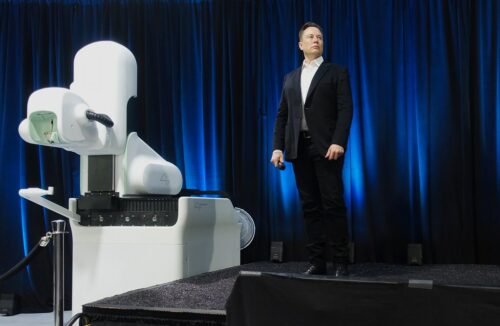Image Courtesy of Flickr.
Elon Musk has blown up Twitter—sorry, X—again! On January 29, 2024, the multibillionaire investor and innovator announced that human trials for the long-anticipated Neuralink brain implant project have finally begun. The tweet specifically read, “The first human received an implant from @Neuralink yesterday and is recovering well. Initial results show promising neural spike detection.” Now, some of you may already recognize the impact of such an announcement. But for those just entering the complex world of neurotechnology, here’s a small crash course.
Neuralink, an ambitious tech company, was quietly started in 2016 by Musk as his first foray into the incredible sector of neurotechnology. Three years later in 2019, the company made its first major splash in the news when it unveiled its main project: the development of a small brain implant called N1. N1 is about the size of a coin, with wires thinner than human hair running through the brain. Ideas, theories, and hopes for Neuralink’s future were matched by a healthy dash of skepticism about cyborgs and the artificial intelligence (AI) singularity.
Of the various features unique to the N1 brain chip, the most interesting is the novel electrode density on the sixty-four threads at 1,024 electrodes, which pick up signals from neurons. With this, the device will be able to collect much more brain data which would allow for more precise control from the user. Such precision could manifest itself in more accessible computer interfaces, prosthetic devices with fine motor controls, and treatment for neurological disorders such as Parkinson’s. It could bring us one step closer to allowing people who lost their arms to play the guitar again.
Despite its great potential, common worries about Neuralink stem from Musk’s turbulent track record in business management. This huge development was announced in a tweet and was not registered on ClinicalTrials.gov, a database most research institutions use to monitor research protocols. All we have is the brochure Neuralink used to find volunteers for the research. The brochure claimed the study would take about six years with ‘regular follow-ups’.
While not strictly illegal, it is troubling that the public does not know what protocols the company is taking to conduct these human experiments. What makes it more disturbing is that the animal rights group Physicians Committee for Responsible Medicine previously accused Neuralink of mistreating the monkeys used for experiments with the brain chip. Claims such as these are deeply worrying when it comes to experimentation on the human brain. Novel brain chips are touted to be built for long-term use, yet the only way to verify this longevity is to wait and see if things go wrong with time. This could mean a stroke or death. Yet Musk is not known to be a patient man.
This technology would be wonderful if successfully developed, but first, we need Neuralink to improve in a variety of ways. We need more transparency regarding Neuralink’s research procedures, a demonstration of their dedication to maximizing the safety of the implant chip, and an indication of their accountability for the various allegations they are facing. While many remain cautiously optimistic about the future of this technology, we cannot forget that the man who is feeding us these Neuralink updates once tweeted, “Next, I’m buying Coca-Cola to put the cocaine back in.”
Humanity stands to benefit greatly from the development of such incredible technologies, but with great power comes great responsibility. One only needs to look at the success of OpenAI’s generative models to see how much the public appreciates transparency from companies when presenting epic and somewhat scary technology. Building trust with the target market for developing technology is important in establishing a loyal customer base that will understand the complications that arise from experimentation. This is a lesson Neuralink must learn quickly before something devastating happens to an innocent human brain.

